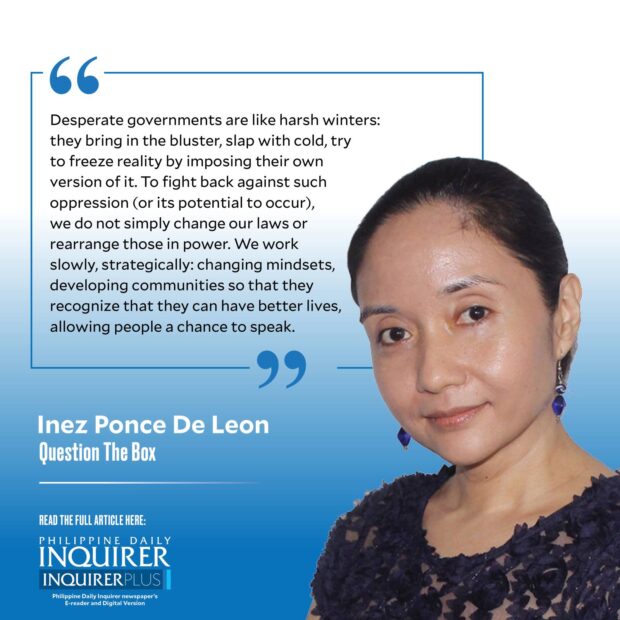Slow, deliberate power

Last week, I met with Dr. Matt Koschmann, an organizational communication expert from the University of Colorado Boulder. Dr. Koschmann has spent years doing field research in the Philippines, and his work includes studying participatory housing projects, such as those by Habitat for Humanity and Gawad Kalinga.
Our research dovetails on this respect, that of allowing people to take the lead in getting services, instead of waiting for the government to give them something.
This genuine empowerment is, of course, difficult to achieve. As Dr. Koschmann said: Housing never occurs in a vacuum. There are government bureaucracies to wade through, negotiations with different parties who all have their own agendas and interests, election ambitions to contend with.
But the point, he says (and this, I echo) is that even if working together toward a common goal takes time, a community and its services will survive in the long term. No project will last long without the involvement of a community, without a deliberate development of that community.
Development is such a stark contrast to what the government often wants: quick projects, credit to local leaders for name recall in the next election, rules imposed, houses gifted. Development, on the other hand, is deliberative, gradual, allowing for a change in culture, leading to a strengthening of community ties.
True development means that at one point, a community can survive on its own without having to wait for government handouts. Storms or droughts might strike, volcanic eruptions or earthquakes can occur, economies can fall—but a truly developed community will know how to survive.
How frightening this is to politicians who like to keep people needy—for needy people are a fearful people who will not dare defy such a government because complaining might mean starvation.
But really, this social engineering of sorts, of handouts and government dependence, cannot be blamed on the poor and the hungry. It is a government, exploiting the desperate, that create the structure for people to keep begging to survive.
It occurred to me, then, that governments aren’t always scared of the quick spark of revolution. The politicians are scared of slow development, the kind where people come together and harness their power, the kind where people realize that their government is only as good as the people it governs.
This idea of the slow burn of development returned as I watched Alexei Navalny’s funeral. Navalny, a long-time critic of Russia’s Vladimir Putin, died after years of starvation and isolation in an Arctic penal colony, where he had been imprisoned on trumped up charges that were the Kremlin’s answer to his daring to speak up against government corruption.
There were police on rooftops on the day he was buried. International newsfeeds were sometimes cut out of their coverage. Russia’s government said nothing in commiseration. And yet thousands of people came: with shouts, with bright red roses that stood out against the dying winter, with defiance even if people had already been detained weeks prior for simply laying flowers at memorials across the country.
The crowds that once stayed home because of fear of being arrested were now out in force. What could a government do, indeed, with such an onslaught? There were people chanting Navalny’s name, others condemning the war on Ukraine.
They called out, in Russian, “You were not afraid, and neither are we”—a modification of something Navalny once said, when he spoke up against Putin: “I am not afraid, so you should not be.
”Music from “Terminator 2: Judgment Day,” Navalny’s favorite movie, played as his casket was lowered. It was a last tribute to his irreverent sense of humor, his defiance to the end. As the day closed, the crowds kept coming, and the police simply looked on.
Will this anger persist? Will people finally rise up? Maybe, maybe not; but it is a sign that not all is well, though the change will be slow in coming. And slow change allows the roots of resentment to go deeper, to perhaps turn into rebellion, maybe one day a revolution.
Desperate governments are like harsh winters: they bring in the bluster, slap with cold, try to freeze reality by imposing their own version of it. To fight back against such oppression (or its potential to occur), we do not simply change our laws or rearrange those in power. We work slowly, strategically: changing mindsets, developing communities so that they recognize that they can have better lives, allowing people a chance to speak.
Because that is the development now, perhaps, miles away, in a country where people have lived for decades in the slow death of a long winter. Like the bright red roses, they are seeing that they can fight back—that they should not be afraid, because there was once one man who was not, and there will be many more to come.
Governments should be afraid of the slow growth of their people—because true democracy, like the human need for freedom, will fight. And it will be back.
iponcedeleon@ateneo.edu




















